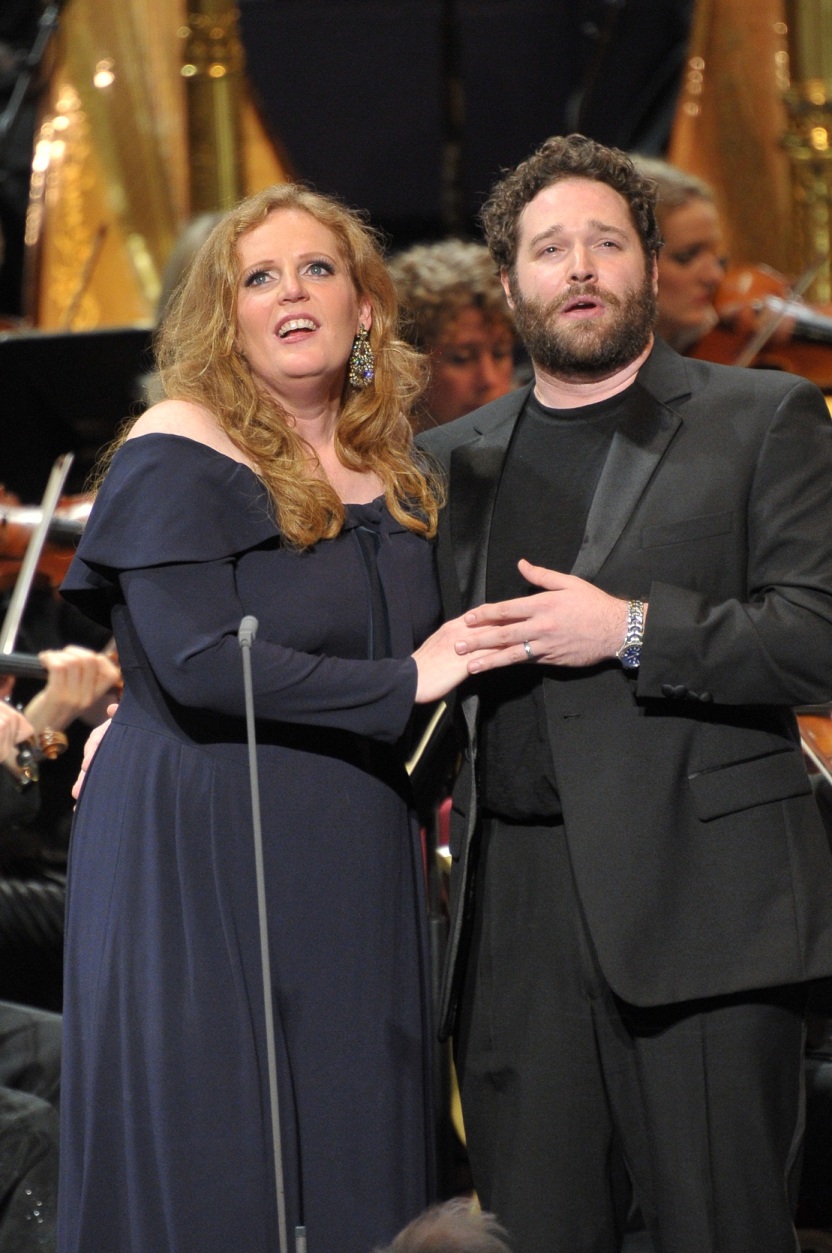BBC Proms: Les Troyens, Royal Opera House Orchestra, Pappano | reviews, news & interviews
BBC Proms: Les Troyens, Royal Opera House Orchestra, Pappano
BBC Proms: Les Troyens, Royal Opera House Orchestra, Pappano
Berlioz's Trojan epic takes time to settle at the Royal Albert Hall
Last night's concert performance of Berlioz's Les Troyens was not a Prom for the fainthearted. After all, if sitting through a five-hour opera had been a daunting undertaking for the Covent Garden audiences last month - who could also enjoy David McVicar's eye-catching staging - then it was inevitable that anyone seated in the Royal Albert Hall for the visually pared-down version was expecting to feel very culturally virtuous by the end of the night.
Still, if ever an opera were going to work in the cavernous Royal Albert Hall then it would be Les Troyens. First, there are the sheer forces involved, with its huge orchestra requiring three harps, and the full-scale chorus playing as central a role as the main soloists. Then, there's Berlioz's incredible score encompassing everything from grand operatic through to symphonic style, with far more solo orchestral work than is usual for an opera orchestra to get its teeth stuck into. Lastly, it's just the sheer emotional investment that Berlioz poured into this, his career-culminating homage to an obsession that began in his boyhood Latin lessons.
Carthage opened up in all its glory as Westbroek paced the stage
“I imagined they knew me, so well did I know them,” he said of the characters of Virgil's Aeneid, and the Shakesperean-scale opera he crafted around them has a range of expression and dramatic power that demands hearing, whether you're into Berlioz or not, and whether you get to see it in its fully staged version or have to content yourself with the music alone. The BBC Proms did a brilliant thing by including it in the 2012 season.
The many who turned up for this epic afternoon-cum-evening experienced both the best and the worst of what a concert performance can do to an opera. While Anna Caterina Antonacci gave one of the performances of the night as Cassandra - dramatically expressive with gorgeous vocals - she was very much a lone agent in the first two acts, which were too marred by the feeling that this was a cast stunted by their new concert environment into half-hearted acting, cursory wooden-hand gestures and a lack of interaction between characters, all in the midst of some of the most thrilling, chilling scenes the opera has to offer. Thankfully however, with the opening of Act Three everything changed.
 Perhaps it was Eva-Maria Westbroek's vivacious Dido (pictured right with Bryan Hymel as Aeneas. Photograph Chris Christodoulou), or perhaps there had just been a back-stage pow-wow. Whatever it was, Carthage opened up in all its glory as Westbroek paced the stage with Hanna Hipp as Anna, the two women finally doing what should have been happening all along, concert performance or no, namely, feeling their roles, reacting to each other and engaging with the chorus. It felt like the first duet of the night, and from that moment the opera came to life, as if the rest of the cast were galvanised by the new energy on stage.
Perhaps it was Eva-Maria Westbroek's vivacious Dido (pictured right with Bryan Hymel as Aeneas. Photograph Chris Christodoulou), or perhaps there had just been a back-stage pow-wow. Whatever it was, Carthage opened up in all its glory as Westbroek paced the stage with Hanna Hipp as Anna, the two women finally doing what should have been happening all along, concert performance or no, namely, feeling their roles, reacting to each other and engaging with the chorus. It felt like the first duet of the night, and from that moment the opera came to life, as if the rest of the cast were galvanised by the new energy on stage.
In all, some voices filled their new, huge acoustic better than others. In fact, some of the best and interesting vocal performances came courtesy of the cameo roles, such as Ji-Min Park's Iopas, and the strong vocal and dramatic presence of Hipp's Anna. Under the direction of Antonio Pappano, the orchestra itself took a little time to sound comfortable in its skin, but was pushing all the right buttons far more swiftly than the solo vocalists, glittering, thundering, dancing and making love across Berlioz's myriad of different textures and genres, smoothly changing stylistic tack to deal out fresh contrasts. The one constant throughout were the voices of the chorus, whose brilliance in conveying the range of feelings and dynamics required of them was truly superlative.
Share this article
Add comment
The future of Arts Journalism
You can stop theartsdesk.com closing!
We urgently need financing to survive. Our fundraising drive has thus far raised £49,000 but we need to reach £100,000 or we will be forced to close. Please contribute here: https://gofund.me/c3f6033d
And if you can forward this information to anyone who might assist, we’d be grateful.

Subscribe to theartsdesk.com
Thank you for continuing to read our work on theartsdesk.com. For unlimited access to every article in its entirety, including our archive of more than 15,000 pieces, we're asking for £5 per month or £40 per year. We feel it's a very good deal, and hope you do too.
To take a subscription now simply click here.
And if you're looking for that extra gift for a friend or family member, why not treat them to a theartsdesk.com gift subscription?

Comments
As a life long lover of
I was also at last night's
How can you purport offer a
I felt this was a strong
Kaufman is practically